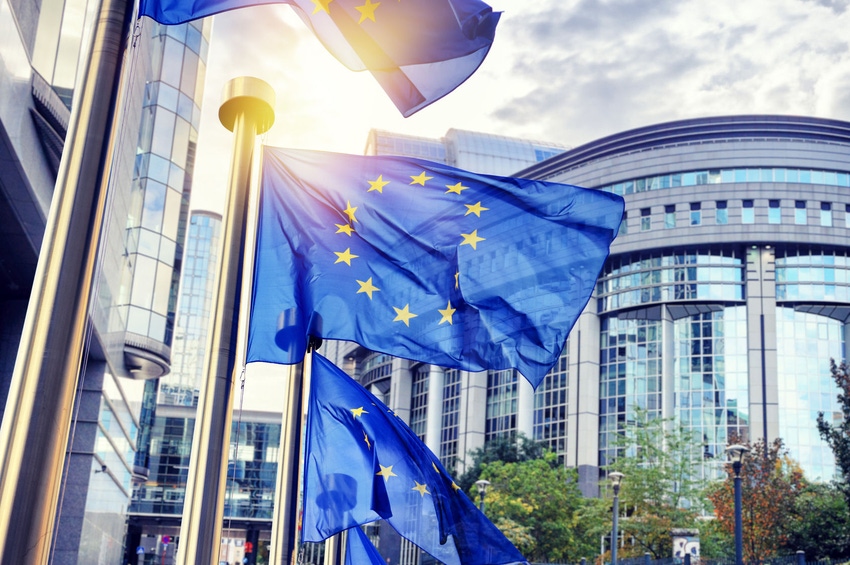EU names big tech firms it has in its DMA sights
Alphabet, Amazon, Apple, ByteDance, Meta, Microsoft are all now officially designated ‘gatekeepers’ by the EU, meaning they have six months to comply with a list of new regulatory demands.
September 6, 2023

Alphabet, Amazon, Apple, ByteDance, Meta, Microsoft are all now officially designated ‘gatekeepers’ by the EU, meaning they have six months to comply with a list of new regulatory demands.
The Digital Markets Act is essentially a mechanism by which the EU can attempt to curb the power and influence of a few big internet companies. It defines its mission as ‘preventing gatekeepers from imposing unfair conditions on businesses and end users and at ensuring the openness of important digital services.’
Meanwhile it considers digital platforms as gatekeepers ‘if they provide an important gateway between businesses and consumers in relation to core platform services.’
In July The EU announced a list of firms that would meet the threshold for being gatekeepers and with the designation now confirmed for Alphabet, Amazon, Apple, ByteDance, Meta, and Microsoft, they have six months to comply with a series of rules. Many of these are to do with interoperability between platforms, openness with regards to data, and competition. The full list can be read here.
The Commission has also opened four market investigations to assess whether Microsoft’s Bing, Edge and Microsoft Advertising and Apple’s iMessage should qualify, which seems to be in response to some assertions by the firms in question that they should not.
“Under the DMA, these investigations aim to ascertain whether a sufficiently substantiated rebuttal presented by the companies, demonstrate that services in question should not be designated. The investigation should be completed within a maximum of 5 months,” reads the release.
It’s also looking into whether Apple’s iPadOS should be designated as a gatekeeper, ‘despite not meeting the thresholds.’
Meanwhile it concluded that although Gmail, Outlook.com and Samsung Internet Browser meet the thresholds under the DMA to qualify as a gatekeeper, Alphabet, Microsoft and Samsung ‘provided sufficiently justified arguments showing that these services do not qualify as gateways for the respective core platform services.’
Samsung has therefore not been designated as gatekeeper with respect to any core platform service.
“More choice for consumers, fewer obstacles for smaller competitors: the DMA will open the gates to the Internet,” said Thierry Breton, Commissioner for Internal Market. “With today’s designation we are finally reining in the economic power of 6 gatekeepers, giving more choice to consumers and creating new opportunities for smaller innovative tech companies, thanks for instance to interoperability, sideloading, real-time data portability and fairness. It was high time that Europe sets the rules of the game upfront, to ensure digital markets are fair and open.”
Commissioner Didier Reynders added: “The Digital Markets Act will help creating a level-playing field for all companies competing in the European digital market, as it will bring about more contestability and openness in markets. Today, we identified the first six gatekeepers that must respect the new rules set forth by the DMA.”
In terms of what it intends to do about it now, we’re told the Commission will monitor how well the six firms are sticking to the new rules, and if they don’t comply with them it can impose fines up to 10% of total worldwide turnover, which can jump up to 20% ‘in case of repeated infringement.’
In case of ‘systematic infringements’, the Commission is also empowered to adopt ‘additional remedies’ such as obliging the firms to sell a business or parts of it, or banning it from acquisitions of additional services.
In other words, the rhetoric the EU has been churning out with regards to its concern over the power of a few big, primarily US based, internet firms has finally coalesced into new rules that have some serious teeth.
Get the latest news straight to your inbox. Register for the Telecoms.com newsletter here.
About the Author(s)
You May Also Like











_1.jpg?width=300&auto=webp&quality=80&disable=upscale)


.png?width=800&auto=webp&quality=80&disable=upscale)